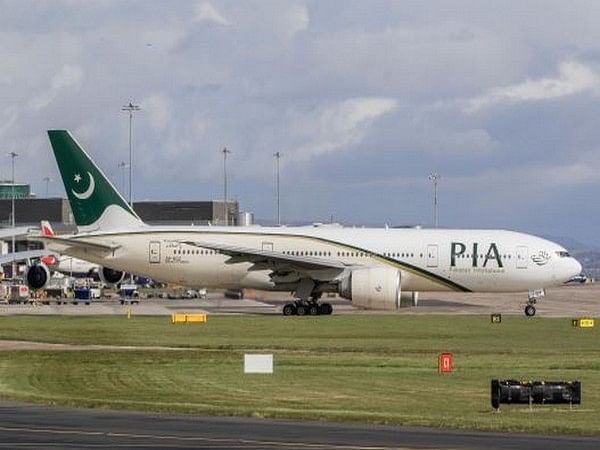Dr Bilawal Kamran
Israel’s decision to reignite its violent campaign in Gaza has taken the conflict’s death toll past a staggering 50,000 lives, deepening the humanitarian crisis in the region. This renewed escalation of hostilities, which saw Israel launching airstrikes on Gaza while ceasefire talks were ongoing, is a brazen breach of diplomatic efforts. Israel’s government justified its actions by claiming that Hamas was using the ceasefire as an opportunity to regroup and rearm. However, this narrative has been widely criticized within Israeli media and even questioned by former hostages, further calling into doubt the legitimacy of the government’s reasoning. The real motivations behind Israel’s actions appear more complex and politically charged, with significant implications for both Israeli politics and the broader Middle East.
The ceasefire agreement, which had offered a fleeting glimpse of hope for peace, required Israel to engage in negotiations aimed at securing a permanent settlement. However, Israeli Prime Minister Benjamin Netanyahu’s far-right government has shown a clear reluctance to pursue such talks. Rather than adhering to the terms of the ceasefire, Israel saw an opportunity to push for a more one-sided agreement with Hamas, likely emboldened by the presence of Donald Trump in the White House. Trump, who had previously suggested ethnic cleansing in Gaza—remarks that had been relegated to the fringes of far-right, anti-Palestinian rhetoric—appears to have given Israel the political cover to take such drastic actions.
Netanyahu’s motivations, however, may extend beyond securing a “better” deal with Hamas. The Israeli Prime Minister, who has faced mounting political and legal challenges, appears to have used the war as a mechanism to retain his position of power. As he stands trial for corruption charges, Netanyahu’s government has come under severe scrutiny for its handling of security matters, including the failure to prevent the deadly Hamas attack on October 7, 2023, which ignited the current crisis. In a highly controversial move, Netanyahu fired top security officials who had raised concerns about his political instability contributing to Israel’s inability to detect and prevent the attack. Protests have erupted in Israel in response to these dismissals, with many questioning the government’s competence in dealing with the situation.
Pl subscribe to the YouTube channel of republicpolicy.com
The continuation of hostilities also provides Netanyahu with a convenient smokescreen to pass a deeply controversial budget, which would otherwise be difficult to approve. Should the budget fail to pass, it could trigger an election that many analysts believe would result in Netanyahu losing power. The bloodshed in Gaza, therefore, may be serving a dual purpose: not only does it secure a more favorable negotiation with Hamas, but it also distracts from Netanyahu’s domestic challenges, keeping his position secure in the face of mounting pressure.
However, the human cost of this strategy is undeniable. More than 50,000 lives have been lost in the latest round of violence, with the vast majority being Palestinian civilians. The devastating toll is a stark reminder of the brutality of the conflict and the devastating consequences of Israel’s military actions. Palestinians have been subjected to relentless airstrikes, leaving entire neighborhoods in Gaza in ruins. These actions have been condemned by human rights organizations worldwide, who describe them as disproportionate and unlawful under international law.
Even more concerning is the role of international powers in perpetuating the conflict. The United States, Germany, and several other Western nations continue to provide Israel with the weapons and resources necessary to sustain its military campaign. Despite widespread international outcry over the atrocities in Gaza, these countries have largely refrained from taking meaningful action to stop the violence. The US, in particular, has long been a staunch ally of Israel, and its unwavering support has allowed Netanyahu to continue his policies with little fear of international repercussions.
The consequences of this support are clear. By arming Israel and offering diplomatic cover, the United States and other Western powers are complicit in the ongoing suffering of the Palestinian people. This tacit approval of Israel’s actions, regardless of the humanitarian cost, underscores the geopolitical dynamics at play. The priority for these nations seems to be maintaining a strong alliance with Israel, particularly in the context of broader regional security concerns, such as countering Iran’s influence in the Middle East.
Despite the overwhelming evidence of Israeli military abuses, the international community has struggled to take decisive action. The United Nations, for instance, has called for an end to hostilities and called attention to the humanitarian disaster in Gaza, but its resolutions have largely been ignored by Israel. The continued blockade of Gaza, the destruction of essential infrastructure, and the targeting of civilian areas have only worsened the humanitarian crisis. Yet, the global powers that supply Israel with arms continue to look the other way, prioritizing political and strategic considerations over human rights and international law.
The complicity of these Western powers raises uncomfortable questions about the true motivations behind their support for Israel. For the United States, this support may be driven by a combination of geopolitical interests and domestic political considerations. Many pro-Israel lobby groups hold significant influence in US politics, and this has shaped Washington’s policy toward the Middle East for decades. Similarly, European countries like Germany have historical ties to Israel, which often lead to a reluctance to challenge Israeli actions, no matter how egregious they may be.
But at what cost? The lives of tens of thousands of people in Gaza have been sacrificed in a brutal and futile conflict. Netanyahu’s ability to remain in power, despite facing corruption charges and widespread protests, seems to be predicated on the continued suffering of Palestinians. The deaths of innocent civilians, both in Israel and Gaza, have become a byproduct of political maneuvering, as Netanyahu seeks to secure his own political future and gain leverage over Hamas.
The scale of the suffering in Gaza is immense. Families have lost loved ones, homes have been reduced to rubble, and entire communities have been displaced. The people of Gaza are living in constant fear of bombings and airstrikes, with little hope for a better future. Yet, despite the overwhelming evidence of Israel’s violations of international law and the mounting human toll, the international community remains largely passive, caught in the web of geopolitical interests and alliances that continue to shape the outcome of this conflict.
Accordingly, Israel’s resumption of its bloody campaign in Gaza serves a multitude of political and strategic objectives, most notably the preservation of Netanyahu’s political power. However, the staggering loss of life and the humanitarian catastrophe unfolding in Gaza cannot be ignored. The continued support of Israel by the United States, Germany, and other Western powers in the face of these atrocities raises critical questions about the role of international politics in perpetuating conflict and human suffering. The bloodshed in Gaza is not merely a tragic consequence of an intractable conflict; it is the result of deliberate political decisions made by those in power, both in Israel and abroad, who are willing to sacrifice countless lives for their own geopolitical gain.















